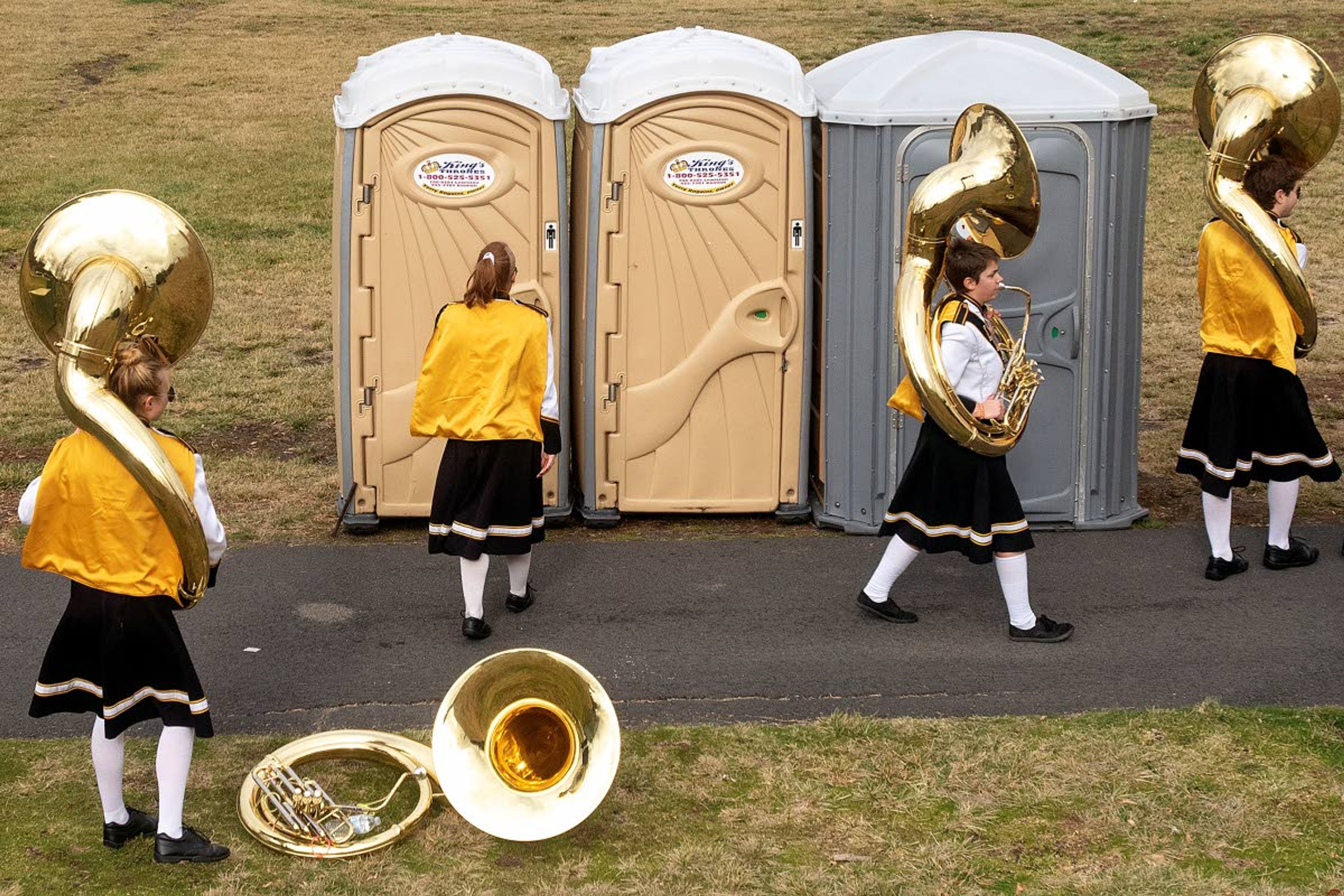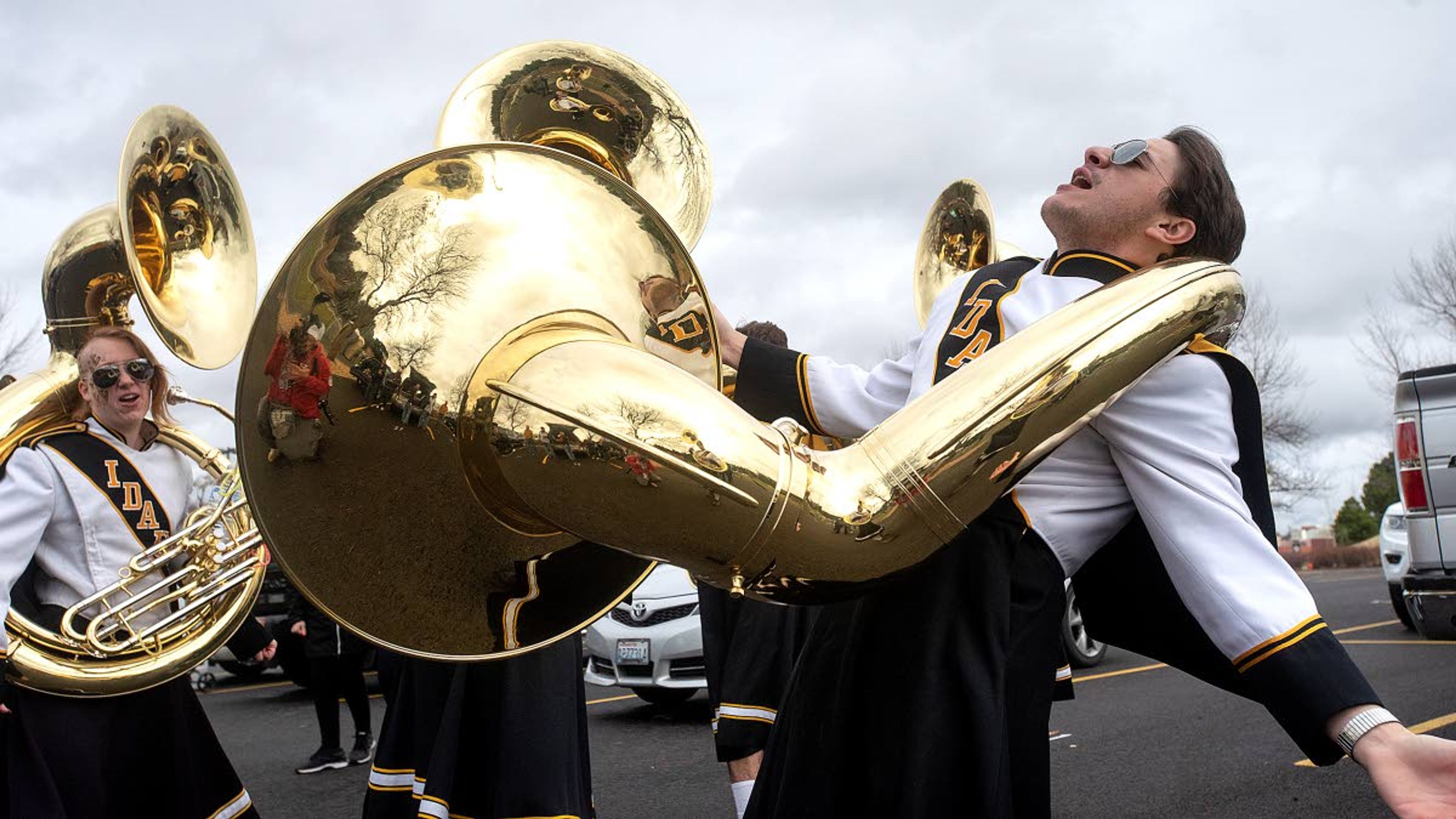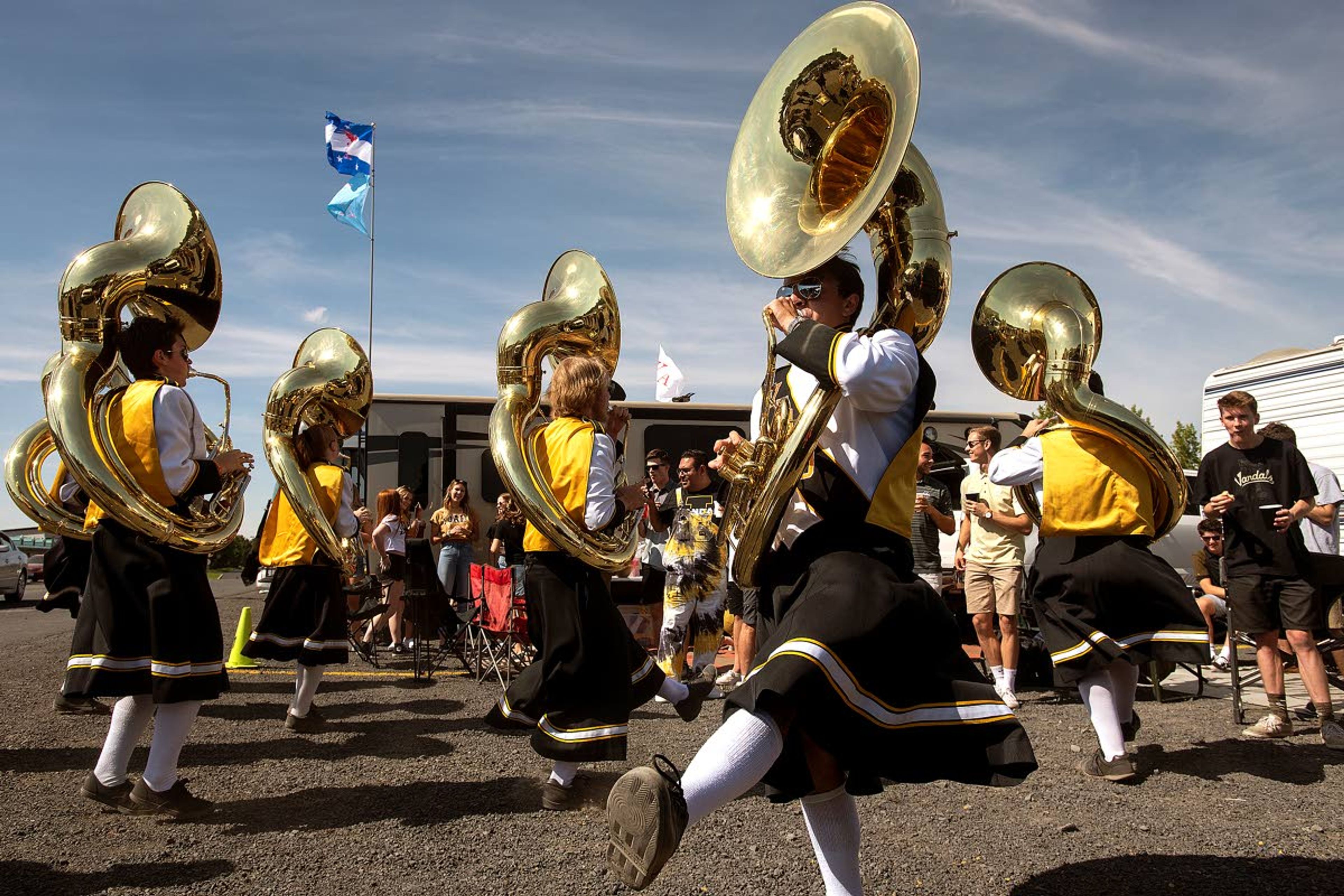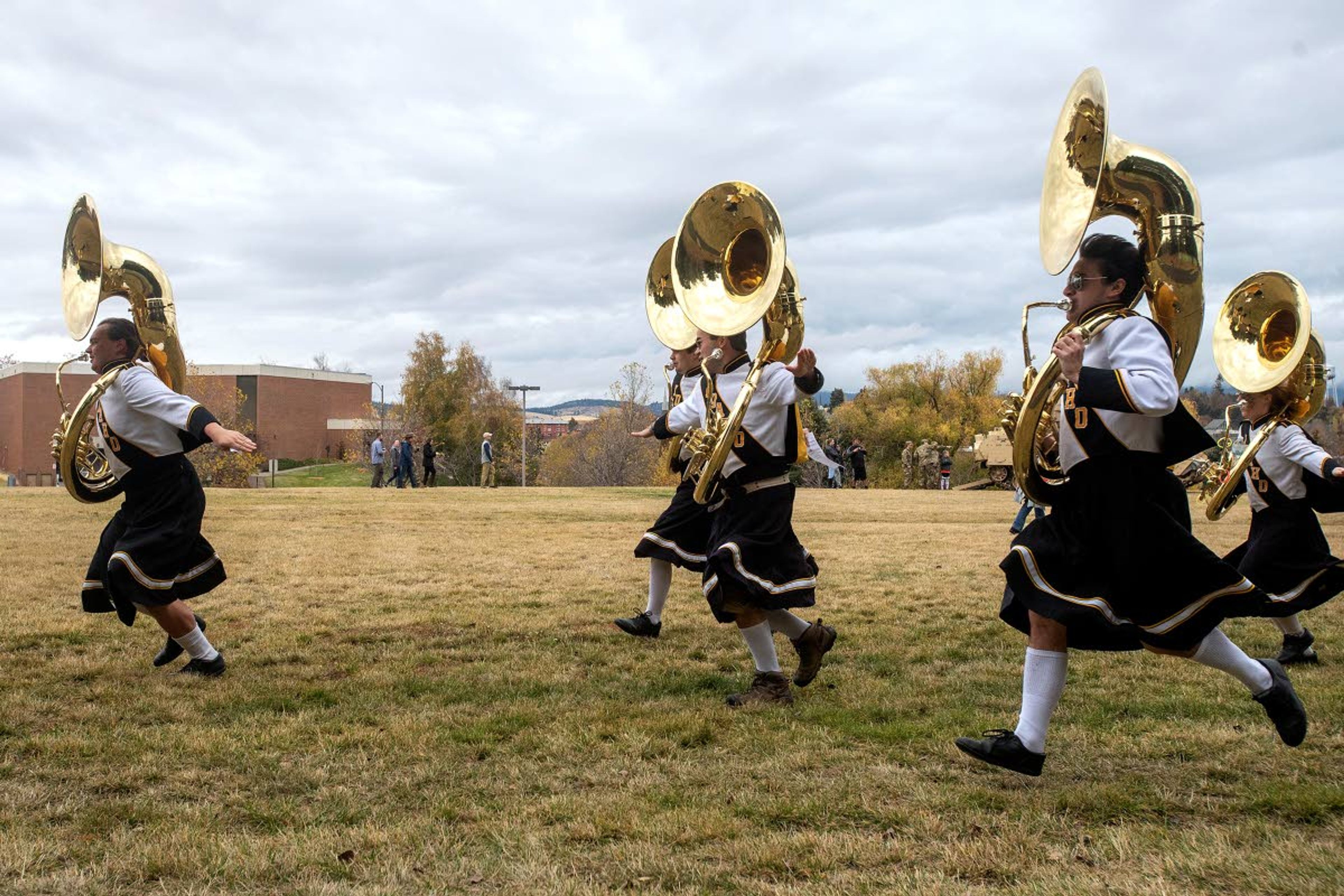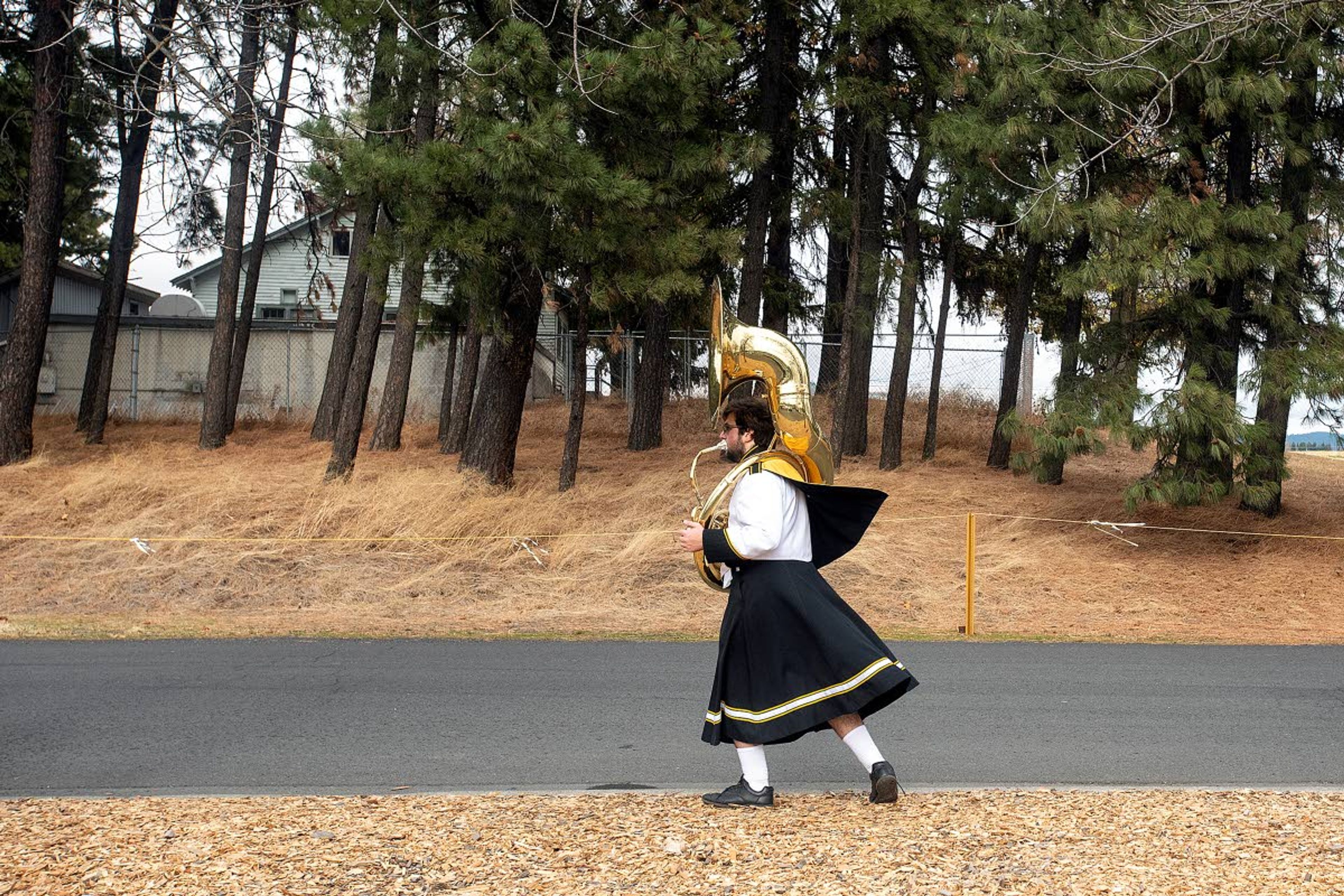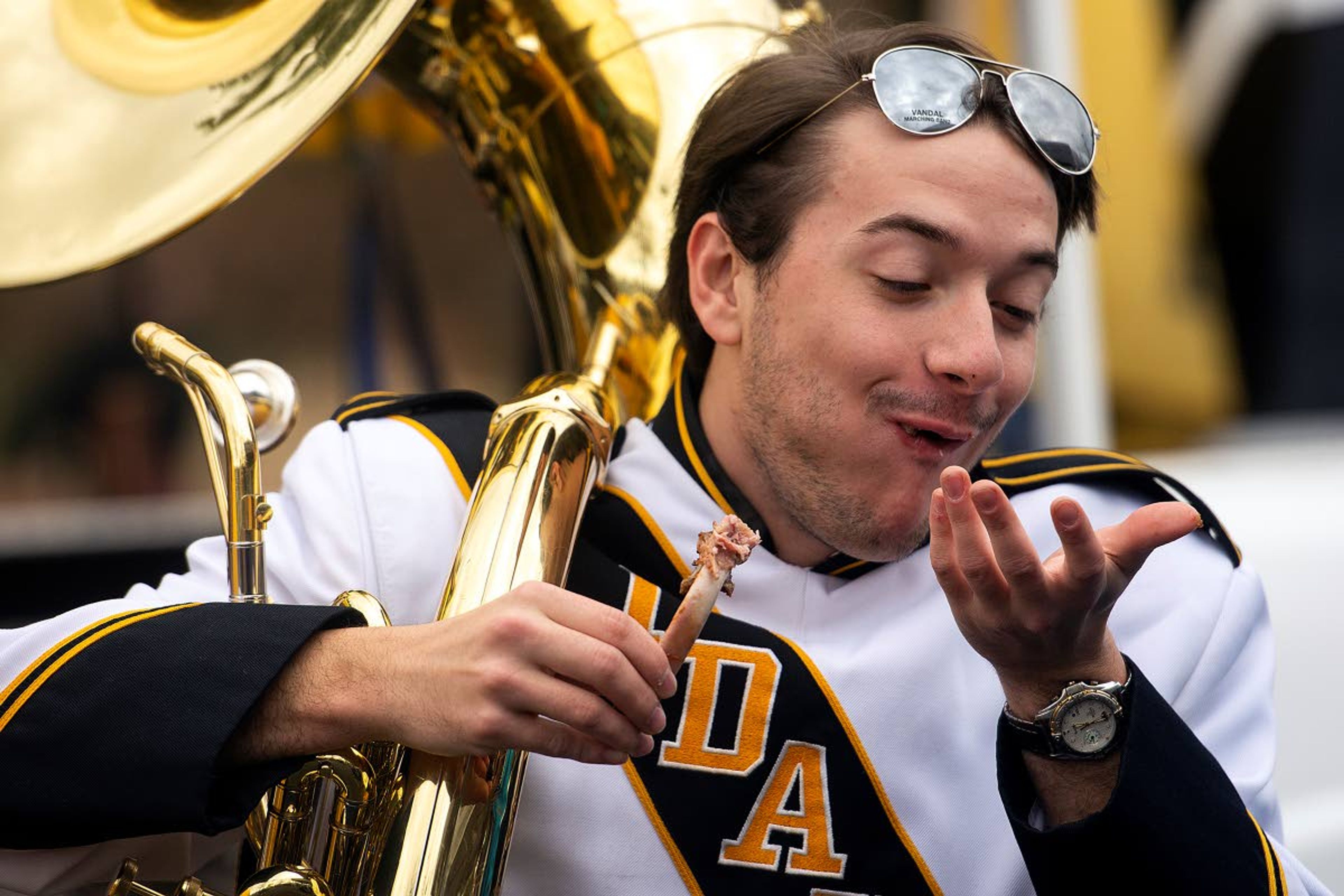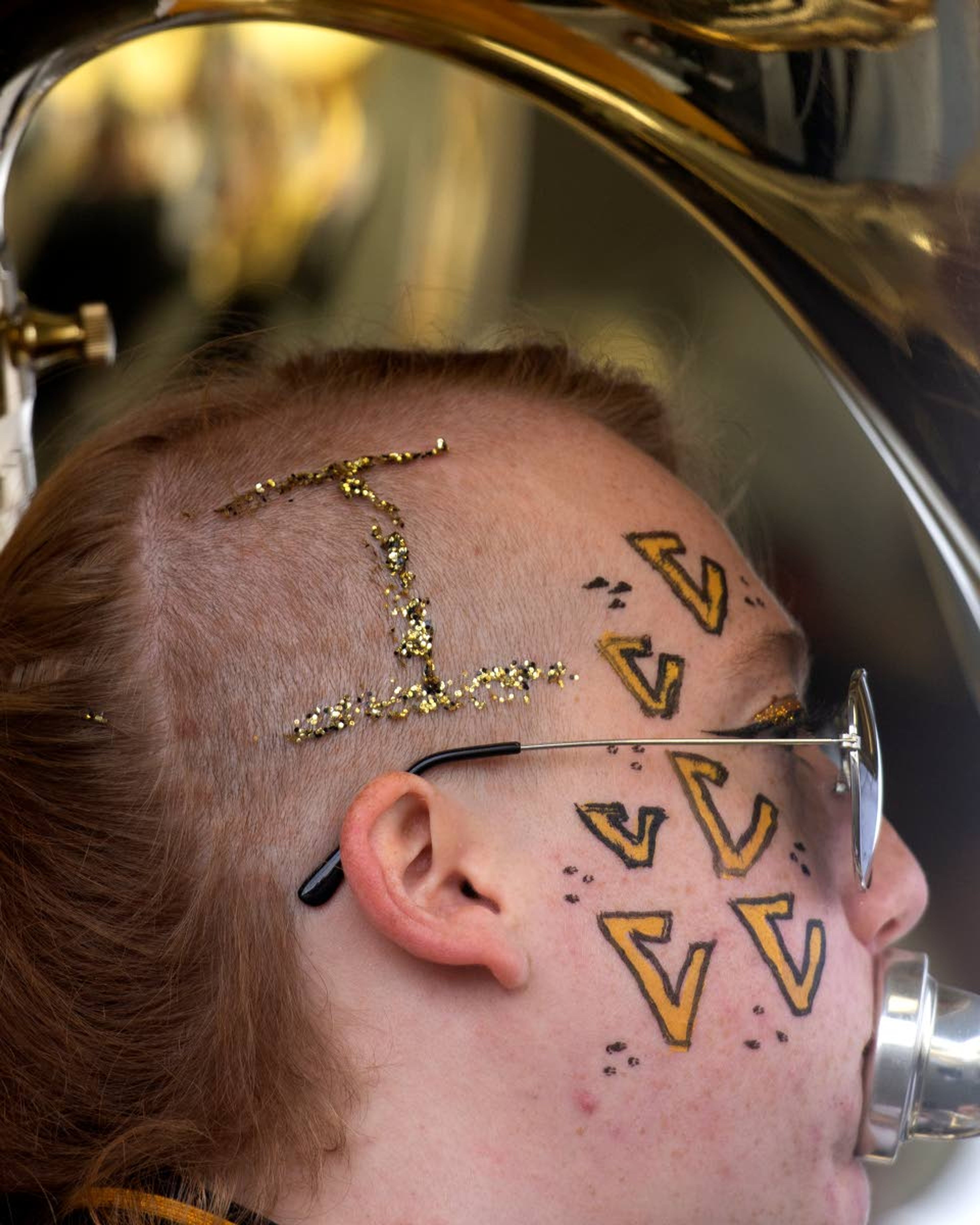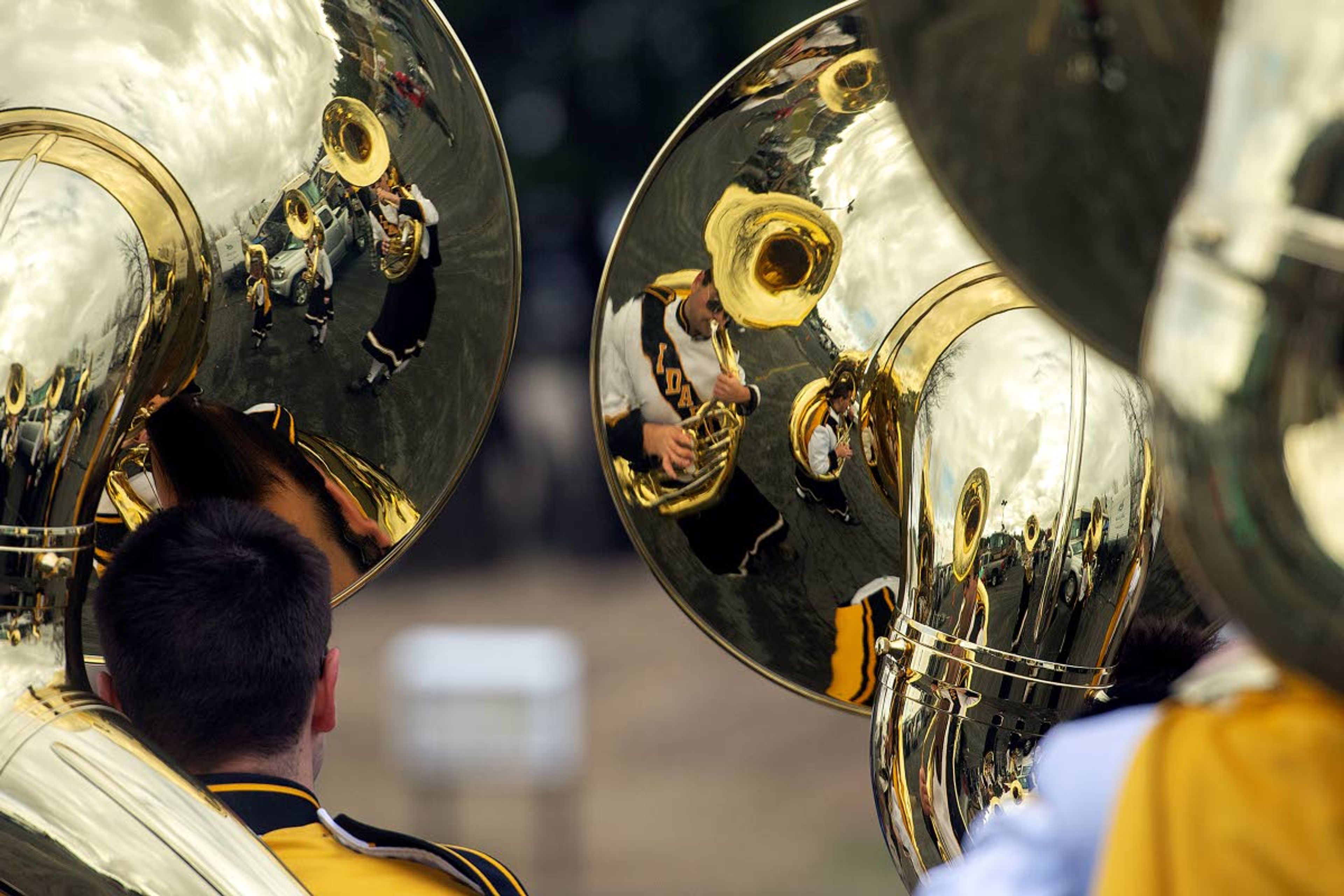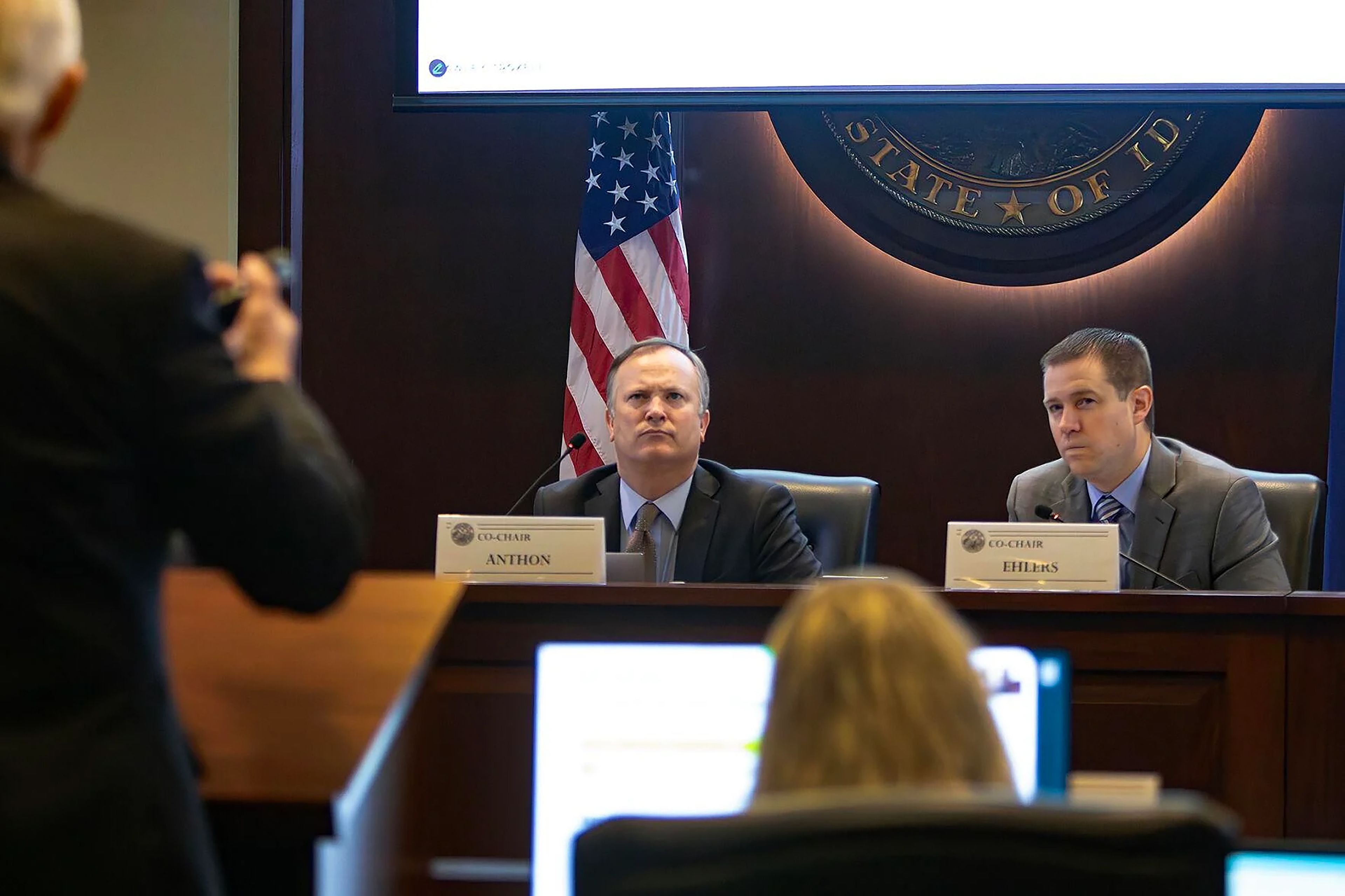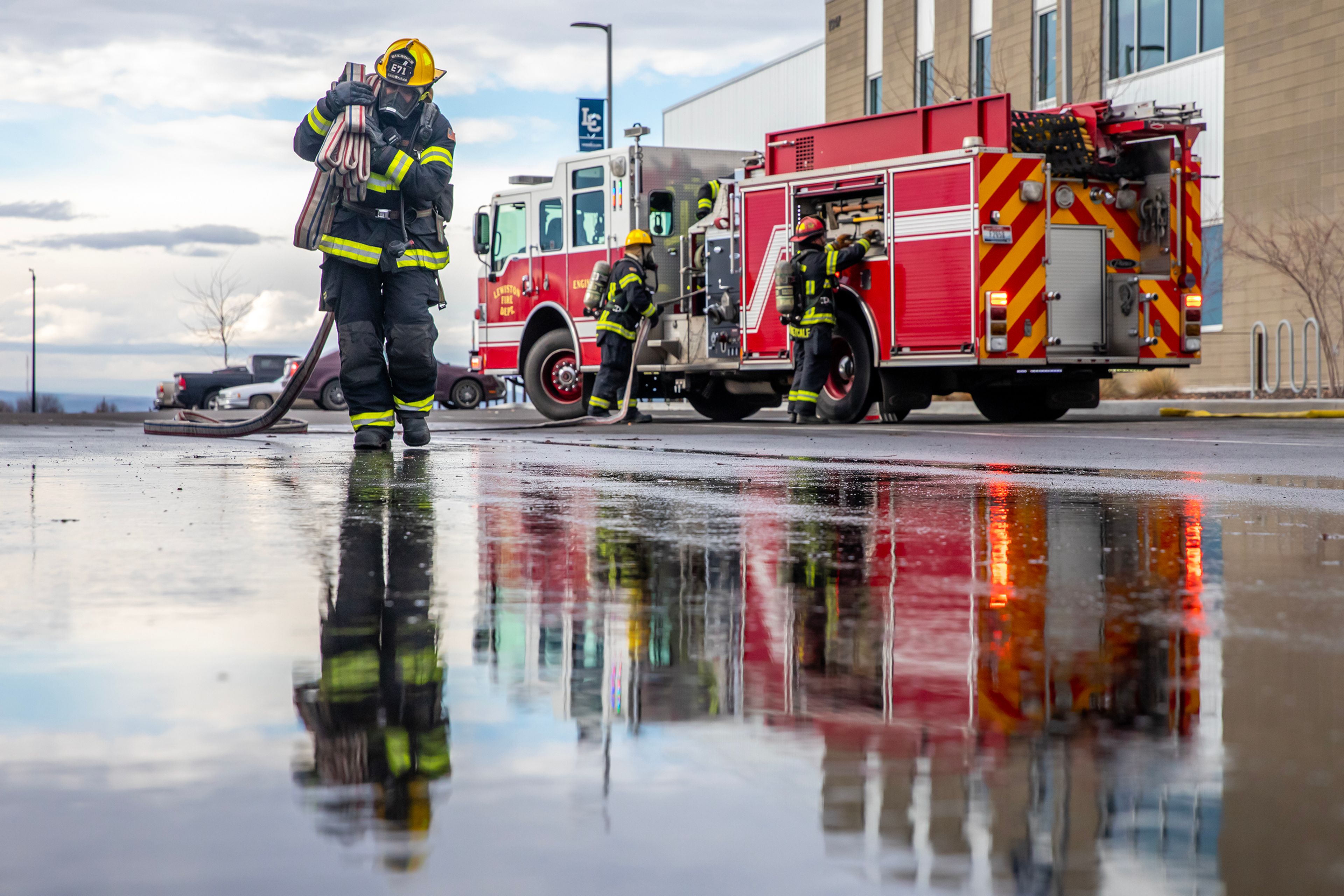All about that brass
The party really gets started at the Vandal football tailgate once those sousaphone players bring the zany
MOSCOW — The flatulent bass of sousaphones is a welcome sound to tailgaters’ ears at University of Idaho home football games.
The sometimes-obnoxious, always-hilarious group of band players dance and prance up to pregame revelers and treat them to trebleless renditions of the Vandals fight song, a jaunty beer-swilling song and a sea chantey.
“What would you do with a drunken sailor, ‘ear-lye’ in the morning?” the group chanted.
Bobbing up and down, the oversized horns are visible to tailgaters long before they hear a distinctive whoomp of bass. The shimmering bronze and gold of the tubalike horns mirror the smiling faces of the eight UI marching band members.
Jogging along the Vandals’ practice field, several of the students, clad in black-and-white skirts, eyed a group of U.S. Army recruiters to try their first songs on. The soldiers they started with were unimpressed, but they got a couple of hoots of approval.
While walking over to tailgaters, tooting and bellowing, a man walking behind them exclaimed, “Excuse me” after a particularly loud and deep report from one of the players. Though their instrument is higher in pitch than the tuba, the lighter, brighter, brass behemoth is still hefty to carry at a quick pace between the parked RVs and vans outside the Kibbie Dome in Moscow. The songs are fan favorites, with their own call-and-response lyrics.
“In heaven there is no beer. That’s why we drink it here,” begin the sousaphonists. “Right here,” the tailgaters yell back.
“And when we’re gone from here, our friends will be drinking all our beer” is followed by the tailgaters shouting, “Those bastards.”
Calvin Blitman, 21, has been in the group for several years and has the bass-driven voice to project over the sometimes-deafening sousaphones.
Blitman said those in the small group are the only marching members in skirts, and the explanation of how the sousaphone players got the kiltlike attire comes with lies, half-truths and exaggerated stories.
“There’s a bunch of conflicting stories,” Blitman said. “You’ll hear two or three different stories, and only one of them is true.”
Originally the skirts were given as a punishment, but players liked the new duds, or so the story goes.
“If we really get in trouble, maybe they’ll make us wear tuxes,” Blitman said.
Along with the jovial, pepped-up nature of the performance, players are sometimes gifted barbecued food from tailgaters.
“One year they had this whole seafood spread, and this group let us have a seafood dinner,” Blitman said.
Tim Malm, 20, said the performance warms up both players and fans.
“It’s a tuba tradition,” Malm said. “It’s kind of expected. But it’s not for us, it’s for the fans, and it’s fun.”
Asked if, say, a flutist would be allowed to join the pregame playing, the players gave a unanimous and emphatic, “No.”
“It’s our tradition; it gets us really excited and warmed up,” Malm said.
A former sousaphone player and current music teacher at Sacajawea Junior High School in Lewiston, Marshand Duke was sipping some suds prior to a recent game and spotted one of his former students blowing through the Vandal fight song.
“One of those guys I had in fifth grade,” Duke said.
He also donned the skirt when he attended UI, saying he and fellow sousaphone players bombarded fraternities and sororities with Tchaikovsky’s “1812 Overture,” getting pelted by coins until the players had enough spare change to buy a case of beer.
Duke said he plays the curved brass instrument for his grade schoolers, and the occasional bold (or burly) one chooses to pick it up.
“I demonstrate it, and some of them kind of grow into it,” Duke said. “It is awesome and rewarding to see them as elementary students and now in college marching band.”
Holm may be contacted at (208) 848-2275 or tholm@lmtribune.com. Follow him on Twitter @TomHolm4.
